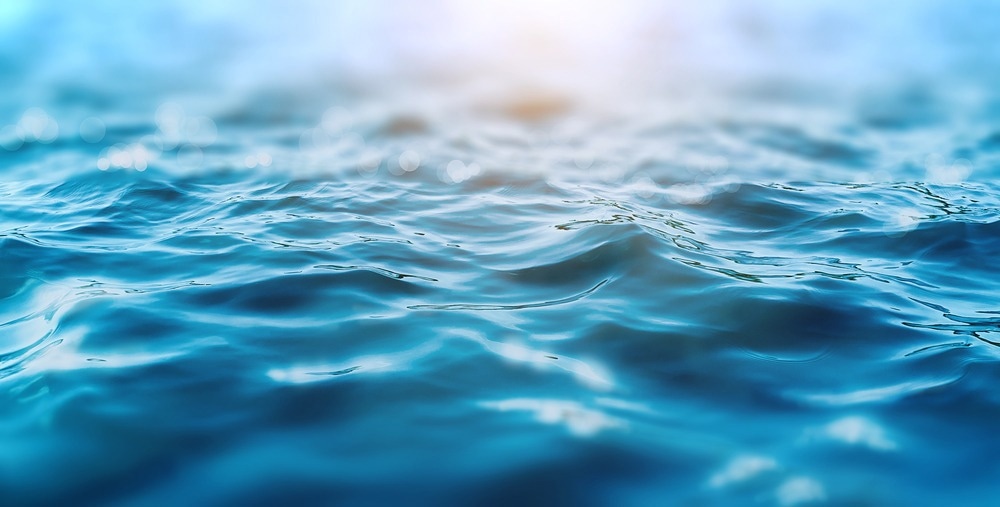Resources are scarce for several components necessary to supply chains that will support America’s decarbonization transition. Developing renewable energy requires new approaches to reliably extract essential resources since traditional mining is difficult and risky.

Image Credit: khak/Shutterstock.com
Researchers in the United States will need to develop novel approaches to get the materials required for a variety of technologies to advance both national security and economic competitiveness. Batteries, electric motor magnets, catalysts, nuclear reactors, and other crucial carbon-free energy technologies are among them.
One untapped resource for obtaining these elements is water. The different methods by which essential minerals can be collected from various water streams have recently been covered in a recent review by researchers at the Argonne National Laboratory of the U.S. Department of Energy.
According to Seth Darling, director of advanced energy technologies at Argonne, various forms of water offer different types of material resources.
The oceans are such a tremendous resource because the total quantities of many valuable and important materials are vast, but they are also highly dilute. Wastewater has also been in need of reframing—we want people to see that wastewater is not truly waste, rather, it is rich with all sorts of valuable stuff.
Seth Darling, Chief Science and Technology Officer, Advanced Energy Technologies, Argonne National Laboratory
Darling also mentioned geothermal brines and groundwater aquifers as additional potential sources of valuable commodities. One of these elements is lithium, which is increasingly sought after for batteries used in electric vehicles and could be utilized to decarbonize the economy.
Darling added, “Lithium is in the ocean and in geothermal brines; you would extract it differently from these two sources but it’s important to understand which is cheapest, has the smallest environmental impact, and enables secure supply chains. For many other materials, water is underexplored as a source, and that’s something we are paying increasingly more attention to.”
Darling and his colleagues are investigating a variety of traditional and cutting-edge technologies to extract essential components from various types of water, such as membranes and interfacial solar steam generators.
Omar Kazi, a Ph.D. student in molecular engineering at the University of Chicago collaborating with Darling, is researching ways to concentrate wastewater streams to recover valuable materials.
Getting rid of the water through evaporation is an energy-intensive and slow process. n geothermal brines, it can take years for water to evaporate to be able to recover the lithium that is contained in them, which creates a huge bottleneck. The question we are asking is ‘how we can make the water evaporate faster?
Omar Kazi, Ph.D. Student, Molecular Engineering, University of Chicago
Using porous photothermal materials, which effectively transform light into heat, might be one method to achieve it. These light absorbers behave like a black T-shirt that warms up in the sun. That heat is delivered straight to the water at the interaction with the surrounding air, significantly accelerating evaporation.
Darling highlighted that Argonne has extensive skills in the supply chain, life cycle, and techno-economic analysis. Furthermore, the laboratory specializes in essential material extraction materials, chemistry, and process engineering.
This uniquely positions the lab to contribute to a more secure and circular economy of materials, particularly in terms of extracting more from water streams.
On March 31st,2023, a publication based on the findings, “Material design strategies for recovery of critical resources from water,” was published online in Advanced Materials.
Other Argonne researchers who contributed to the study include Wen Chen, Jamila Eatman, Feng Gao, Yining Liu, Yuqin Wang, and Zijing Xia.
This research was supported by the Advanced Materials for Energy-Water Systems (AMEWS) Center, an Energy Frontier Research Center funded by the U.S. Department of Energy, Office of Science, Basic Energy Sciences at Argonne National Laboratory.
Journal Reference:
Kazi, O. A., et al. (2023) Material Design Strategies for Recovery of Critical Resources from Water. Advanced Materials. doi:10.1002/adma.202300913.